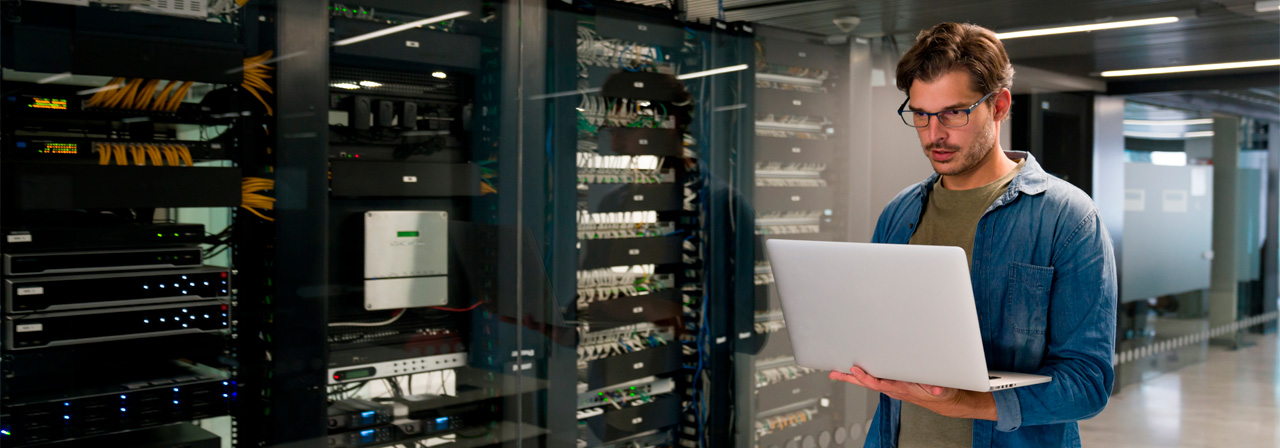AI and energy consumption challenge data centers to innovate amid growing demand
The data center sector is growing rapidly while dealing with challenges and opportunities brought by AI and the pressure for sustainability.
- Agência Tecere
On one hand, there is the exponential increase in the volume of data worldwide, the consequent growth in demand for data centers, and the extremely high level of energy that these facilities require. On the other hand, there is market and societal pressure for actions to mitigate carbon emissions to contain climate change. Data center operators are facing increasing pressure to minimize the environmental impact of their operations while maintaining a reliable power source. Is it possible to think of a sustainable data center? According to JLL experts, not only is it possible, but it is also necessary.
"A sustainable data center is a data center that has efficient energy consumption and a low carbon footprint. The use of renewable energy sources reduces carbon emissions and environmental impact. In addition, employing technologies that enable more efficient operation and eliminate waste, such as automation, modern cooling systems, and other actions," defines Luciana Arouca, Director of Sustainability at JLL.
Data Centers 2024 Global Outlook
AI and the green energy transition will bring new challenges and opportunities.
Energy availability is a fundamental issue for data center operation, as much as fiber optics. The energy issue is so critical that countries like the United States and the Netherlands are restricting the deployment of new data centers in certain locations. This opens up opportunities in other regions, such as Latin America, with a focus on Mexico and Brazil, according to César Mello, Head of Projects and Development Services at JLL.
"In our country, there is the advantage of notable investments in renewable energy. There is already demand in the real estate market for new projects. Over the next three years, we will witness significant growth in the data center sector in Brazil. This sustainability planning for a green data center must be born before the choice of land and brought into projects from their conception. This is our approach at JLL. This is because energy demand, in addition to being the greatest cost for implementation, also represents a high operational cost. Reducing energy consumption by 15%, 20%, or 30% is a significant figure for a data center," says the executive.
In Brazil, the data center market is led by Campinas, but Rio de Janeiro is consolidating itself with new projects under development. The JLL Data Center in Brazil report provides more details about this sector in the country.
Artificial Intelligence will transform the data center sector
Energy consumption is expected to increase with the advancement of generative Artificial Intelligence (AI), which requires high-performance IT infrastructure and generates much more heat. The growing digital economy and democratization of AI drive the demand for more and larger data centers.
Most data centers built 10 years ago had a critical IT load capacity of less than 10 megawatts (MW). Today, it is not uncommon to hear developers announce new constructions of 100 MW or more. AI is driving extreme scale for new developments, with requirements now ranging from 300 MW to over 500 MW.
As a result, location selection criteria are changing dramatically, with a more prominent focus on the availability of power and delivery timelines. The choice is strategically oriented towards places with available transmission power, low energy costs, and abundant renewable energy sources such as wind, solar, and even hydrogen.
Moreover, the highly specialized equipment needed to support AI will also transform the design of traditional facilities from within. Starting with rack density, which is the amount of computer equipment installed in a metal structure. As rack density increases, with more equipment and higher power, the need for cooling also increases. This is another significant change, especially with liquid cooling, which is much more efficient than air cooling.
All of these trends, as well as the challenges and opportunities brought by AI and ESG, are highlighted in JLL's Data Centers 2024 Global Outlook report.
How to have a sustainable data center
The Director of Sustainability at JLL says that it is common for companies not to know where to start their sustainability journey. This is even more frequent among data center operators due to the lack of indicators and metrics in the sector.
"The fact that companies don't know what to do to be sustainable is linked to a lack of knowledge about which data to use to track metrics. Our consultancy helps define this from the start: what information, which platform to use for data control, and thus be able to prove the veracity of the green venture. With all this planning and data treatment, we can pursue a green certification for a data center. ISO 14001 and LEED are certifications that also cover this segment," explains Luciana Arouca.
It is true that proving the return on investment for some sustainable initiatives is still complicated, but according to the Head of Projects and Development Services at JLL, it is possible to design strategies that bring metrics that allow for implementation studies.
"In addition to suggesting an action plan, JLL monitors performance to check if it meets the plan. Additionally, in construction, when we list suppliers in the purchasing plan for the project, we try to positively influence the client's choice of companies that have sustainable materials and procedures to drive this value chain," says Cesar Mello.
In addition to the environmental impacts of energy and water consumption, other aspects must be considered to be a sustainable endeavor. "The obvious is the starting point, but a holistic perspective is needed on the impact, not only environmental but also on the surrounding community. What are you taking away to have your business there, and what are you giving back? We know that these ideas take time to mature. Transformation happens gradually. It is our role to educate the market and invite our clients to reflect on these issues," concludes Luciana.
